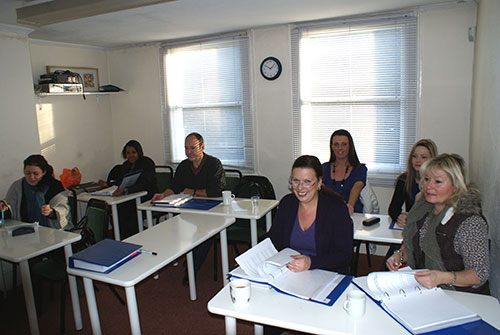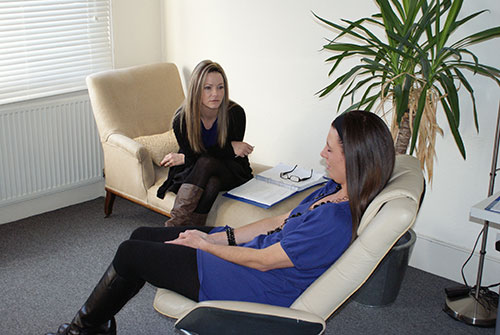By Paul White
Institute Director – The Surrey Institute of Clinical Hypnotherapy

When someone wants to learn hypnotherapy they are inundated with a myriad of courses, trainers and qualifications. Here I expose the key factors in any hypnotherapy training course that you need to watch out for. Quite often these are not discovered until it is too late and the student has started to learn hypnotherapy.
Table of Contents
How NOT to learn hypnotherapy
I can’t tell you the number of times I’ve heard about this technique and that technique that students have learnt on their hypnotherapy course. However, do these techniques make them good therapists? Of course they don’t.
When students learn hypnotherapy they are taught a myriad of techniques that the students in turn come to rely on. The belief is set up that there is a particular technique to solve a particular problem. Nothing could be further from the truth. In point of fact most techniques when adapted and personalised can be used to resolve most problems.
The trouble with most hypnotherapy training is that the student tries desperately to match the client’s issue to the techniques they have learnt. This is a totally ineffectual way of training hypnotherapy students, and leads to ineffectual hypnotherapists. Hypnotherapy students need educating in how to THINK like a therapist, not training in how to ACT like a therapist.
When you learn hypnotherapy – What should you know
To be an effective hypnotherapist you need to learn hypnotherapy in such away that allows you to understand what a client’s subconscious is trying to achieve with the problem behaviour. Until this puzzle is solved the hypnotherapist will have little or no chance of resolving the problem, no matter what technique they use.
Therefore a deep understanding of the motivations and perceptions of the subconscious as they relate to the client is not only important but also critical to the education of the therapist. Any hypnotherapy course that does not take account of these needs is training the student to fail.
Where you learn hypnotherapy matters
The training environment is another area where many hypnotherapy training schools fall down. Quite often the training is conducted in a single room where all the practical work is done as well. This is obviously not conducive to a genuine therapeutic environment, or for the concentration of either party involved. I have heard of training schools who conduct their lectures in hotel rooms and the practise sessions are sometimes held in the bar or public areas; always ask the question before embarking on a hypnotherapy course, and if it is being held in a hotel be cautious.
I have been particularly astonished to learn that some so-called hypnotherapy training is conducted in mega auditoriums, with several hundred students being asked to practice their therapeutic skills in the middle of the auditorium with so called ‘assistants’ offering impromptu advice to maybe 20 or 30 people; the noise was described as being akin to a hall full of turkeys gobbling in nervous anticipation just before Christmas.
On the upside I have heard it is a good place to meet future clients, as most people arrive calm and go home nervous wrecks. It brings a new meaning to the concept of ‘touch’ therapy. Obviously having proper breakout rooms where the students can work one to one is far more professional, and allows the students to get the maximum out of the practicals.
Another important area is preparing the future hypnotherapist to deal with ‘real’ clients. With most hypnotherapy training schools the first ‘real’ client the student will encounter is after they are handed their diploma and told, “Congratulations, you have passed”.
The first client a hypnotherapist sees is a very nerve wracking time. The client will not have been screened to ensure their suitability etc; so when you take a nervous hypnotherapist, an unknown client in an unsupervised environment, it is a recipe for disaster. I have known many a promising career halted at the start because of a very negative experience.
When we train hypnotherapists we intersperse their training with ‘real’ clients that are screened by us to ensure suitability. We are always on hand to supervise in case there are any issues beyond the capabilities or experience of the student. This ensures that the student has the best chance of having a positive experience in their first few sessions, and helps them to build their confidence as an effective hypnotherapist. The sessions are conducted in proper therapy rooms to ensure the clients and the students get the most from the experience.
Learn hypnotherapy from practising hypnotherapists

Another area of concern is, are the trainers practising hypnotherapists themselves? I know of a number of courses being run by trainers with very few client hours under their belt, or others whose sole income is from training new hypnotherapists. The old adage, “those who can, do, those who can’t, teach”, seems to apply here.
There is a simple way to check, just ring up and ask for a therapy appointment. If they “no longer see clients”, or they can get you in immediately, that’s a fair indication that they either only train or that they see very few clients. The problem here is that if they are not seeing many clients they are unlikely to be up to date with their skills, or worse still they may not be attracting repeat clients, which probably means they are not very effective as therapists themselves. They might be able to talk the talk, but can they walk the walk?

Paul White was a trainer and practising hypnotherapist at The Surrey Institute of Clinical Hypnotherapy in Wallington, Surrey, UK. He retired in 2020 but still sees the occasional client from his home near Liverpool.
The Surrey Institute of Clinical Hypnotherapy run intensive and weekend diploma courses throughout the year. Their courses are always done in small groups and is accepted by all the major hypnotherapy associations in the UK and the CNHC
